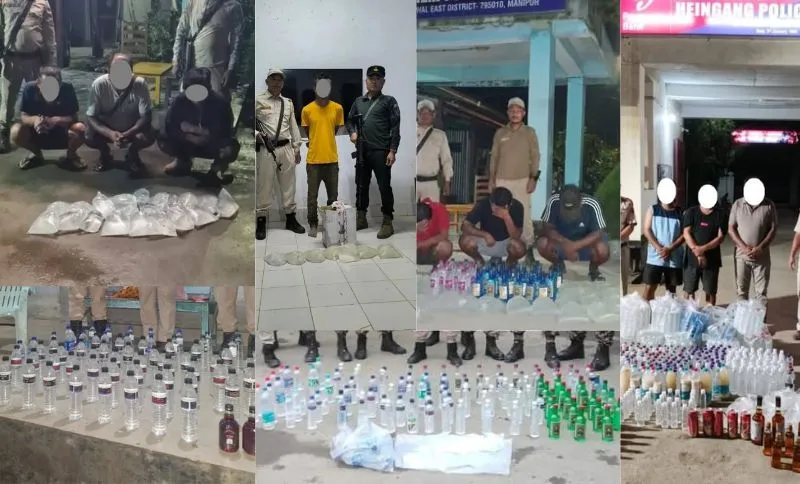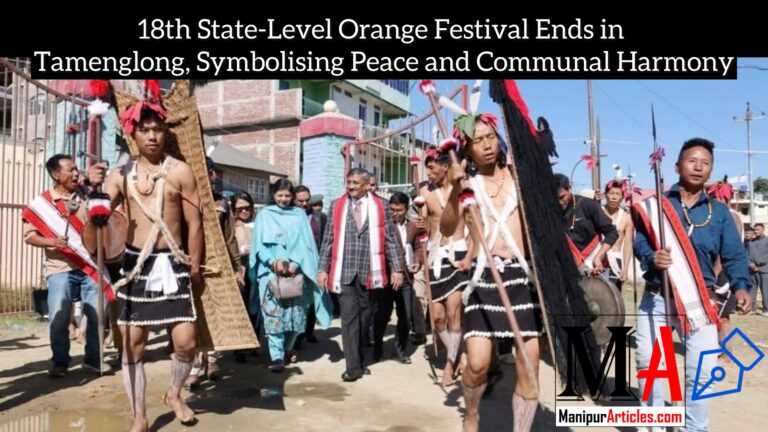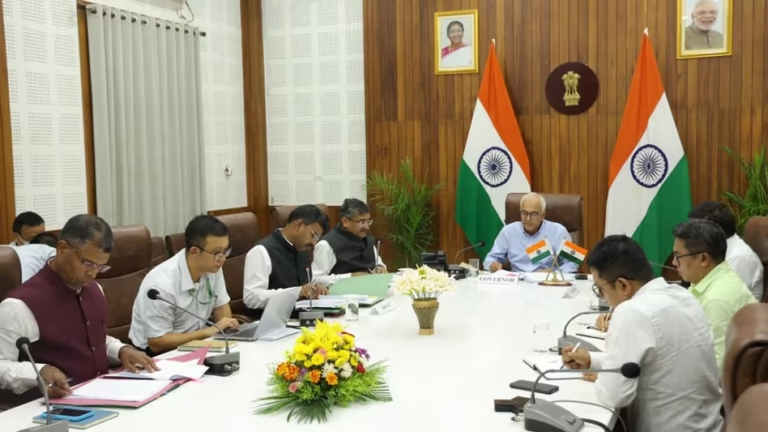Manipur Police Arrest 30 in Crackdown on Illegal DIC & IMFL Liquor Trade
Quick News Summary
Manipur Police, assisted by central forces, arrested 30 people in Imphal East for allegedly transporting, stocking, and selling Distilled Indigenous Country (DIC) liquor and Indian Made Foreign Liquor (IMFL) without permits—actions that violate the Manipur Excise (Amendment) Rules, 2024. The operations—conducted across two days ahead of Independence Day—seized 464 litres of DIC and 40 bottles of IMFL in the first sweep, and another 258 litres of DIC in the second. All accused, along with seized liquor and impounded vehicles, were handed over to Excise officials for further legal action.
Why This Story Matters Right Now
Manipur has been navigating a complex transition in its alcohol policy. For decades, it was known as a “dry” state under the Manipur Liquor Prohibition Act, 1991—only to see partial and phased rollback of prohibition in recent years. That policy shift brought formal rules, fees, and permits into focus—particularly under the Manipur Excise (Amendment) Rules, 2024—but it also created a tempting market for illegal operators. So when news breaks that 30 people were arrested with hundreds of litres of DIC and dozens of IMFL bottles without permits, it’s not just a policing event; it’s a snapshot of a state managing change, compliance, and public safety all at once.
The Core Facts of the Case
- Where & When: The arrests happened in Imphal East, in coordinated actions across two consecutive days leading up to Independence Day.
- What Was Seized: 464 litres of DIC and 40 bottles of IMFL in the first round; 258 litres of DIC in the second
- How Many Arrests: 30 individuals in total
- Legal Basis: Violations of the Manipur Excise (Amendment) Rules, 2024—notably, possession and sale without valid permits.
- Next Steps: Accused, seized liquor, and vehicles were handed to Excise officials for further legal proceedings.
So, What Did Police Do—and Why Now?
Crackdowns ahead of national events (like Independence Day) are common in many states because public gatherings and festive atmospheres can increase the risks tied to unsafe alcohol consumption and public disorder. In this case, police and central forces targeted suspected transport, possession, and retail nodes in Imphal East, where they say they found sizable volumes of DIC and IMFL without proper documentation. The two-stage operation yielded 30 arrests and hundreds of litres of contraband alcohol, as noted earlier.
Reading the Seizure Numbers: What Do They Tell Us?
- 464 litres of DIC + 40 IMFL bottles in one sweep is not small-time; it suggests a supply chain that’s either preparing for holiday demand or replenishing after recent sales
- An additional 258 litres of DIC caught a day later indicates either a network effect (multiple suppliers operating in parallel) or an adaptive pipeline (stock moved to alternative locations after learning of the first raid).
In practice, these seizures disrupt cash flows, remove stock from the market, and create deterrence—especially when vehicles are impounded and handed to Excise for proceedings.
Bottom Line
This case sends a clear signal: regulation is here, and enforcement is serious. As Manipur moves from blanket prohibition to structured legality, the rules give room for lawful business—but they also give police and Excise the teeth to shut down illegal operations. The 30 arrests and substantial seizures in Imphal East underline that message, especially during sensitive, high-traffic periods like Independence Day
FAQs
1) What exactly are the Manipur Excise (Amendment) Rules, 2024?
They’re official updates to the Manipur Excise Rules, 1962, notified on June 18, 2024. Among other things, they refine terminology and lay out permit structures and fees for importing and transporting alcohol within the state.
2) Wasn’t Manipur a dry state? How is alcohol legal now?
Manipur enforced prohibition under the 1991 Act. However, on December 6, 2023, the government withdrew prohibition in certain areas, making regulated sale and production possible in those notified zones.
3) What’s the difference between DIC and IMFL?
DIC (country liquor) is an indigenous, typically molasses-based spirit that’s cheaper and tightly regulated. IMFL is produced in India but styled after foreign spirits (whisky, rum, etc.), usually with a neutral spirit base and blending. Both categories require proper licensing and permits for movement and sale
4) What were the key numbers in the Imphal East raids?
Across two days, police reported 30 arrests, 464 litres of DIC and 40 bottles of IMFL seized in the first raid, and 258 litres of DIC in the second, with vehicles impounded and everything handed to Excise for further action.
5) If alcohol is legal in some areas, why are arrests still happening?
Legality depends on permits, zones, and compliance. Moving or stocking alcohol without valid permits remains an offense. The arrests targeted unpermitted transport, possession, and sales—not lawful trade following the 2024 rules and notified zones.




